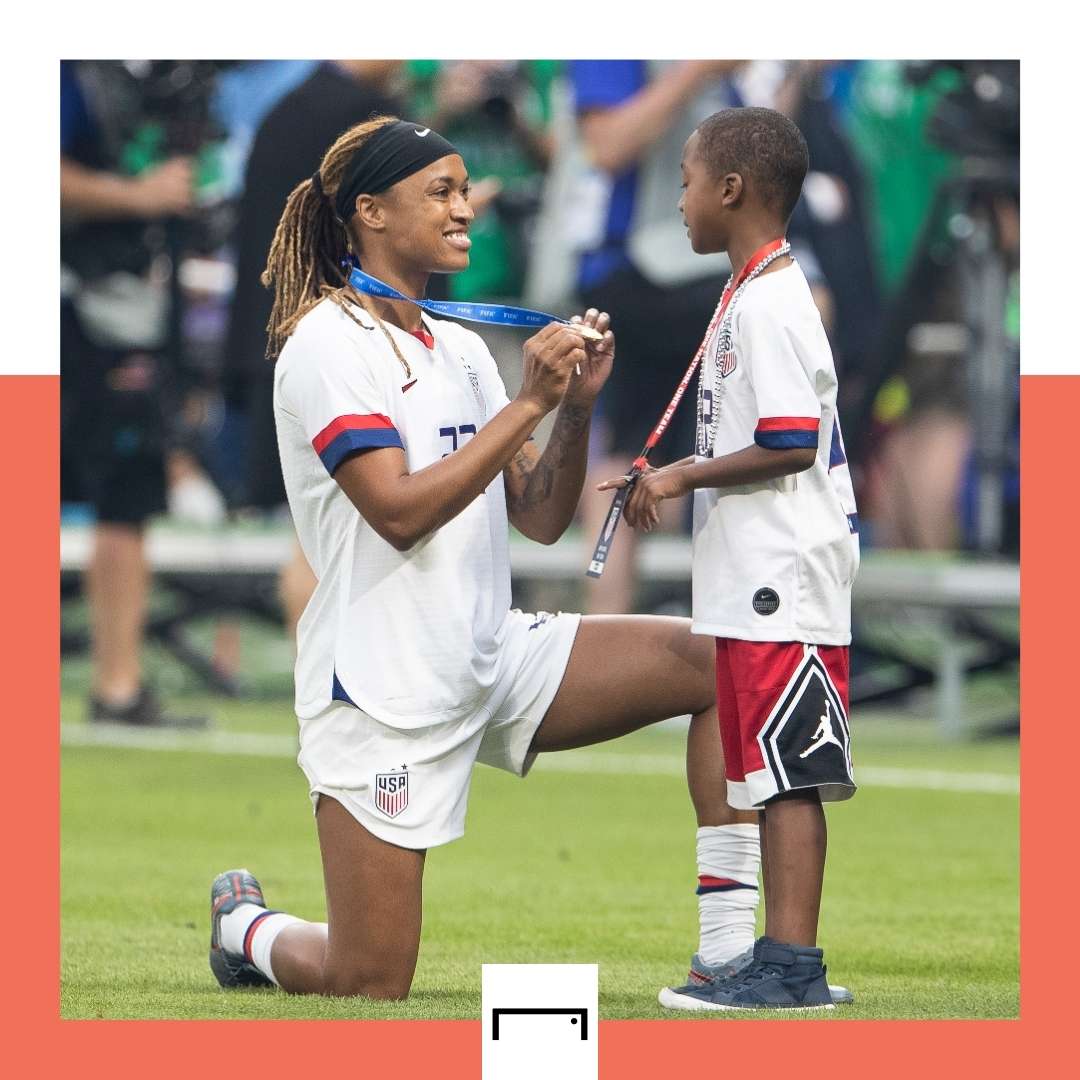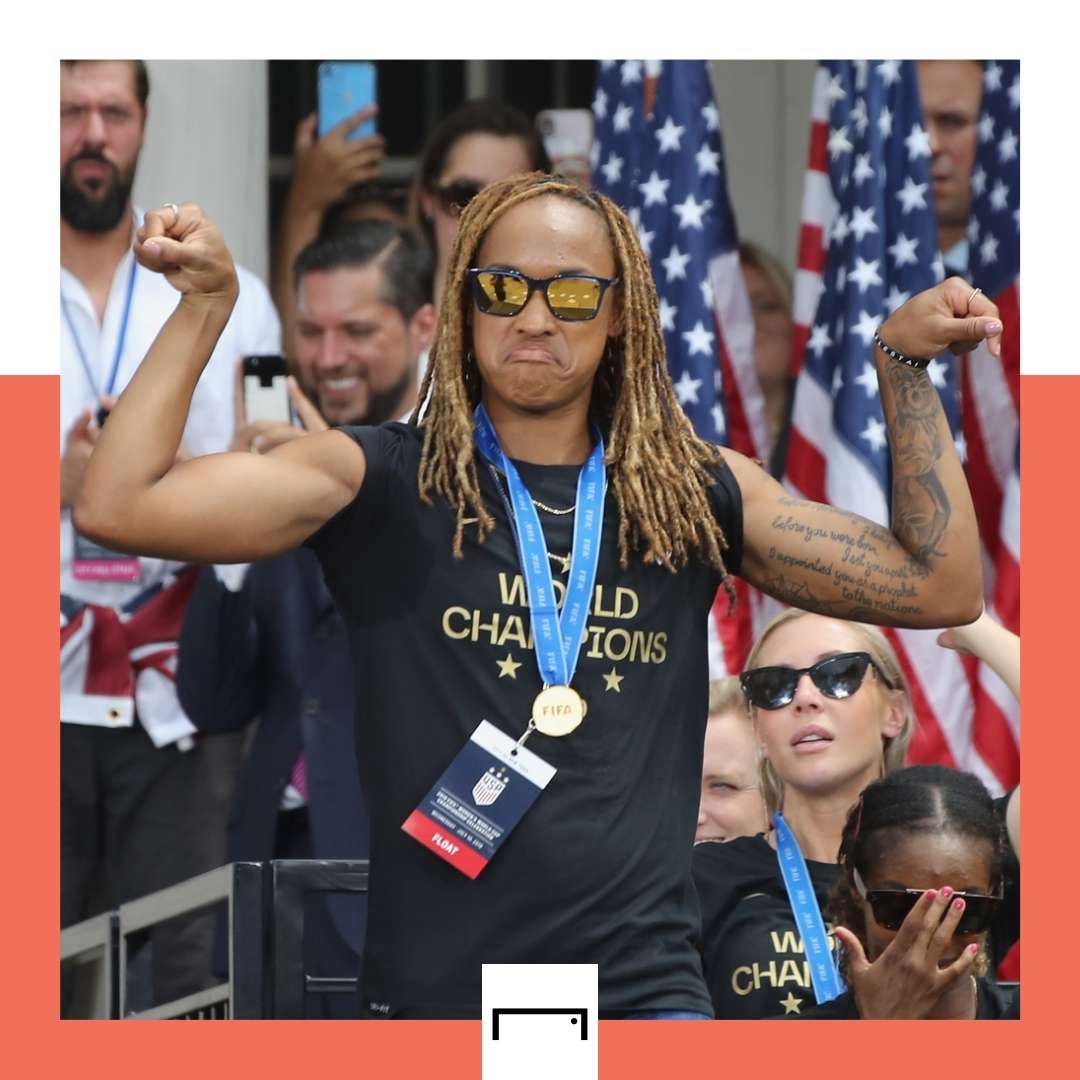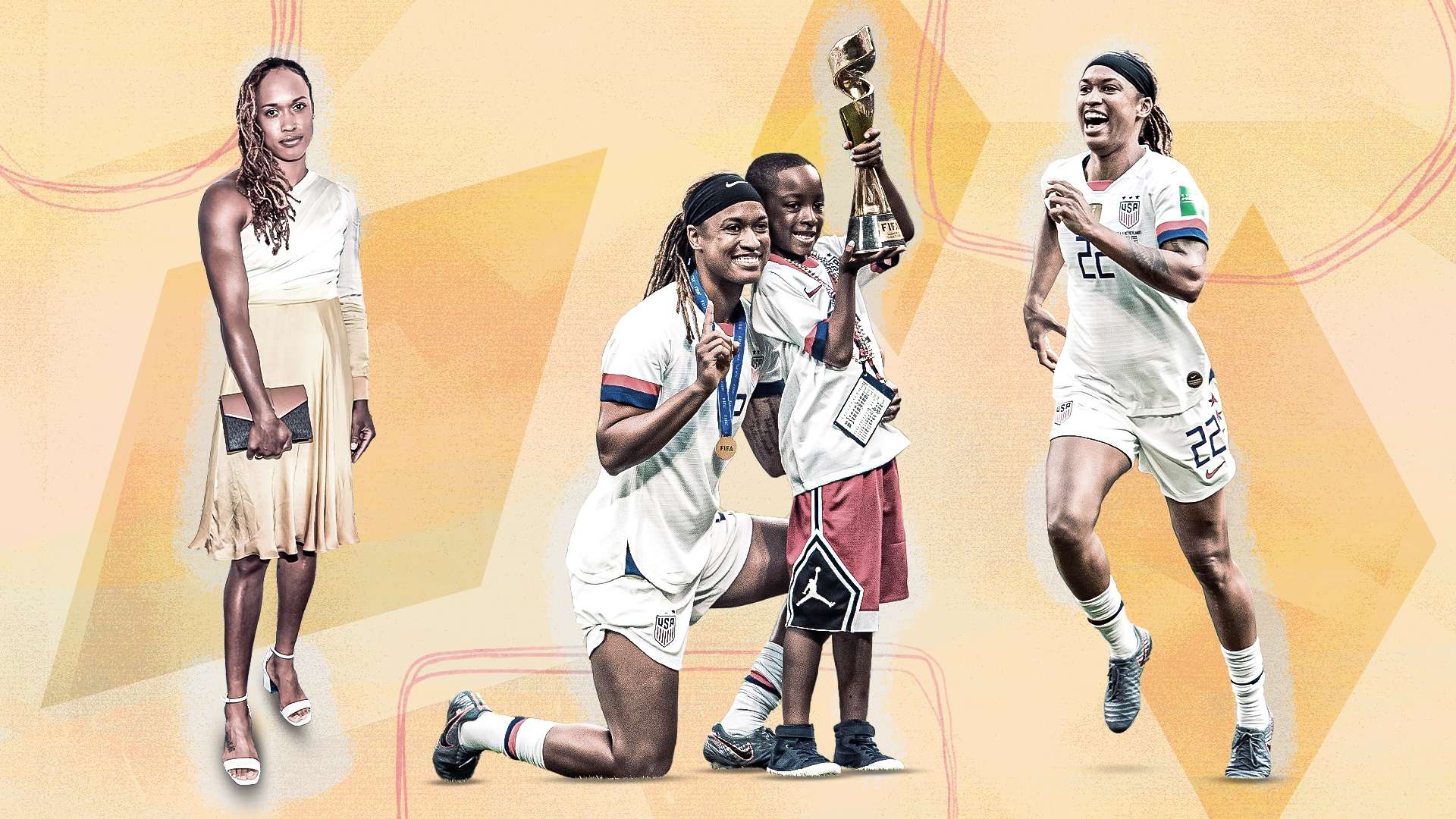When Jessica McDonald gave birth to her son, Jeremiah, in 2012, she did not envisage becoming a world champion with the U.S. women’s national team seven years later.
There is a growing number of soccer players embracing motherhood – Alex Morgan and Sydney Leroux are among those to return the game after pregnancy – but it was not common when McDonald did it 10 years ago.
Getting back to full fitness, managing the small salary she got from her club and balancing motherhood with her profession were all obstacles conquered, as well as a knee injury before pregnancy that should have ended her career.
But it did not. Fast-forward to today, and the 33-year-old is a World Cup winner and a three-time NWSL champion.
When McDonald got that medal around her neck that confirmed her as a world champion, Jeremiah was there, sprinkling confetti over her, holding the trophy aloft himself, soaking the moment in – one McDonald is not sure he fully understands yet.
Next Match
 Getty/GOAL
Getty/GOAL“He just knows mom plays soccer and that's how I make money,” she tells GOAL. “He hasn't quite grasped the intensity of my job, like how big the World Cup is.
“Anytime I'm at camp and he's with me, he's like, 'Mom, where's Megan Rapinoe?!' He has no idea. He just knows she's my team-mate. She's just another person to him. This kid's best friend is Megan Rapinoe! He has no idea who this powerful woman is, but he's so innocent.
“My goal, my dream, the ups and downs, my journey to get to that [World Cup win] and being able to share it with my son was just the most incredible, most amazing, happiest day, moment, literally of my entire life.
“I'm happy and proud to say that he's going to remember it, because he was seven years old at the time. One day, we're going to have a nice little chat about it and I'm hoping and praying that it's going to inspire him with whatever it is he's going to do in his future.
“I think that's going to be really helpful, him having that memory also, us celebrating the successful times throughout mom's life, because he won't remember the struggle, which I'm very happy about.”
That struggle started with patellar tendon surgery and a two-year recovery.
“I didn’t think I was going to be playing sports again!” McDonald says. “I was training with guys just to stay in shape, really, and I accepted at one point throughout my recovery that I was never going to play again.
“I didn't think I'd be here. I really didn't, because I was told that I'm not supposed to be.”
She got “back into the swing of things” with a short stint in Australia, though, where a run to the Grand Final and a prolific goal-scoring season with Melbourne Victory gave her confidence.
“I think giving birth to my son helped heal me in so many different types of ways. I'm fitter now at 33 than I was at 18,” she adds.
It’s quite a statement, since she reveals she had a relatively smooth transition back from pregnancy due to being in such great shape.
“Giving birth to him really helped me – in terms of mind, body and spirit.”
McDonald returned to NWSL, the top league in the U.S., but was making just $15,000 (£11,000) a year for her first few seasons.
She would receive “dabbles of support here and there” but nothing that was “enough”.
“My son sat in his stroller a lot of days during my training sessions, because I couldn't even afford childcare,” she explains. “[Those were] some of the worst times of my life, to be honest.
"I played for six different teams in six different states and cities in my first five years in NWSL, all while having my son by my side. It was a true struggle, because NWSL wasn't supporting moms at the time.
“It made me really question my career, if this was what I wanted to continue to do.
“But we all go through a struggle at some point in our lives. It's truly humbled me and I'm grateful that I went through that because, going through adversity, I feel like I could just get through anything in my life, because that truly prepared me for the worst.”
After several years, McDonald would achieve her biggest goal. She got her first call-up for the USWNT in 2016, which was not just a breakthrough moment on a professional level, but in her personal life, too.
“The only time I ever had 100 per cent support as a mom is with the U.S. national team, because they hire nannies, they fly them out there, they house them, they feed them, whoever we want to come and watch our kid,” she explains. “I'm like, 'where has this been my whole career? Why don't we have this in NWSL?'
“I think that's something we have to continue to fight for in this league, because I have so many friends who have retired at such an early age who were absolutely maniacs at soccer, but they wanted to be moms.”
 Getty/GOAL
Getty/GOALToday, NWSL provides the mothers in the league with a stipend every year for childcare. “Still not enough,” McDonald adds, “but we’re getting something, so that’s a start.”
The forward is also supporting the parents in the league in her own way. She is a true role model to those who want to start a family without having to sacrifice their careers at the same time. Given what she has achieved, she sets an incredible example, too.
“I've had so many of my mom friends hitting me up with issues that they've had or any type of information that they need,” McDonald says.
“It’s nice to be able to carry that mom leadership over because I'm a veteran now – a veteran mom, I guess you could say.
“I do the best I can to help the others, but it's been a joy to see other women kind of looking up to me as the mom and kind of picking my brain how to handle certain things, especially within our league.
“We're superheroes. We're making it a new norm that we don't always have to be in the house and be in the kitchen. We can forget all that.
“It's 2022. Moms can do anything, because we're bad-ass at the end of the day.”


